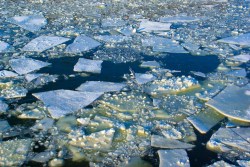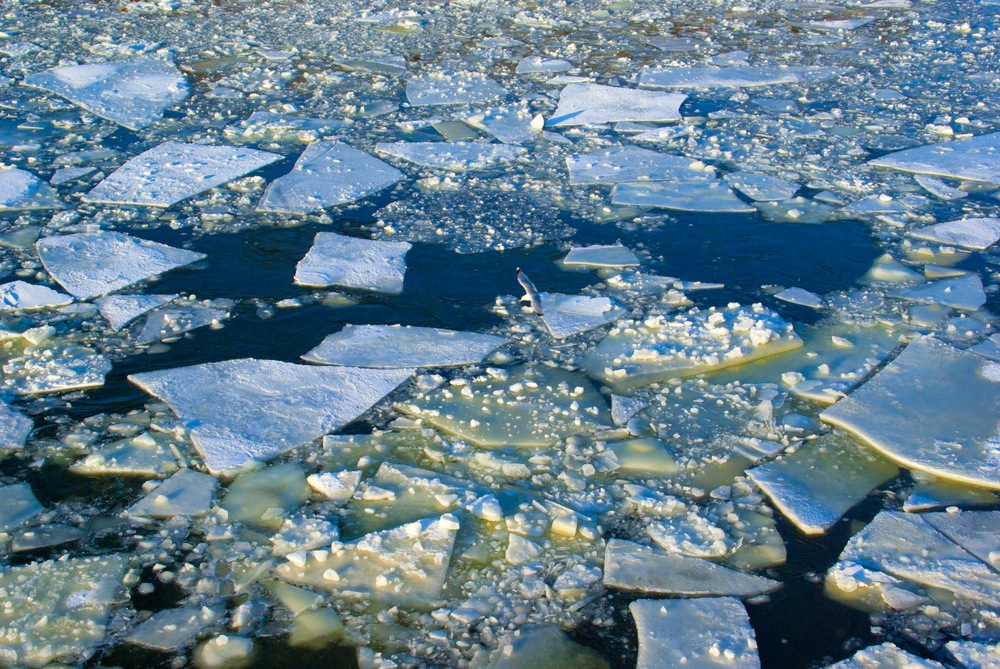
Shutterstock
Though it carries major supervillain cred, placing a scientific research station atop an Arctic ice floe in an era of global warming is a dicey proposition — even for the Russians.
North Pole 40, a Russian science station that monitors pollution and conducts meteorological research, began operating in October on an Arctic ice floe. The Russians have been deploying research stations to drifting ice floes for more than 70 years, and North Pole 40 is their 40th such station.
But they don’t make ice floes like they used to. After just seven months of research, the ice floe that supports North Pole 40 started disintegrating. So Russia is scrambling an ice breaker out to the site to relocate the station and rescue the 16 scientists aboard.
From the AFP, via The Australian:
“The ice floe has crumbled into six pieces,” said Arkady Soshnikov, spokesman for the Arctic and Antarctic Research Institute.
“The people are not at risk but it is not possible to work in these conditions. The ice may disintegrate so a decision has been taken to evacuate” the station, he told AFP.
The station was located at 81 degrees North and 135 degrees West as of early morning on Wednesday. …
The UN weather agency said this month the Arctic’s sea ice melted at a record pace in 2012, the ninth-hottest year on record.
Vladimir Sokolov, who oversees the floating station at the Saint Petersburg-based Arctic and Antarctic Research Institute, said the ice was disintegrating due to climate change.
“This has made the Arctic research significantly harder – the ice has become thinner and the weather conditions more difficult,” he told AFP.
The BBC reports that the research station will be relocated to Bolshevik Island, which is composed of solid ground covered with glaciers. (Borrowed time at best, since those are also melting quickly.)
With the Arctic expected to become ice-free during future summers, we’re certainly in the waning days for Russian ice-floe research stations — bad news for Russian scientists (and James Bond).




